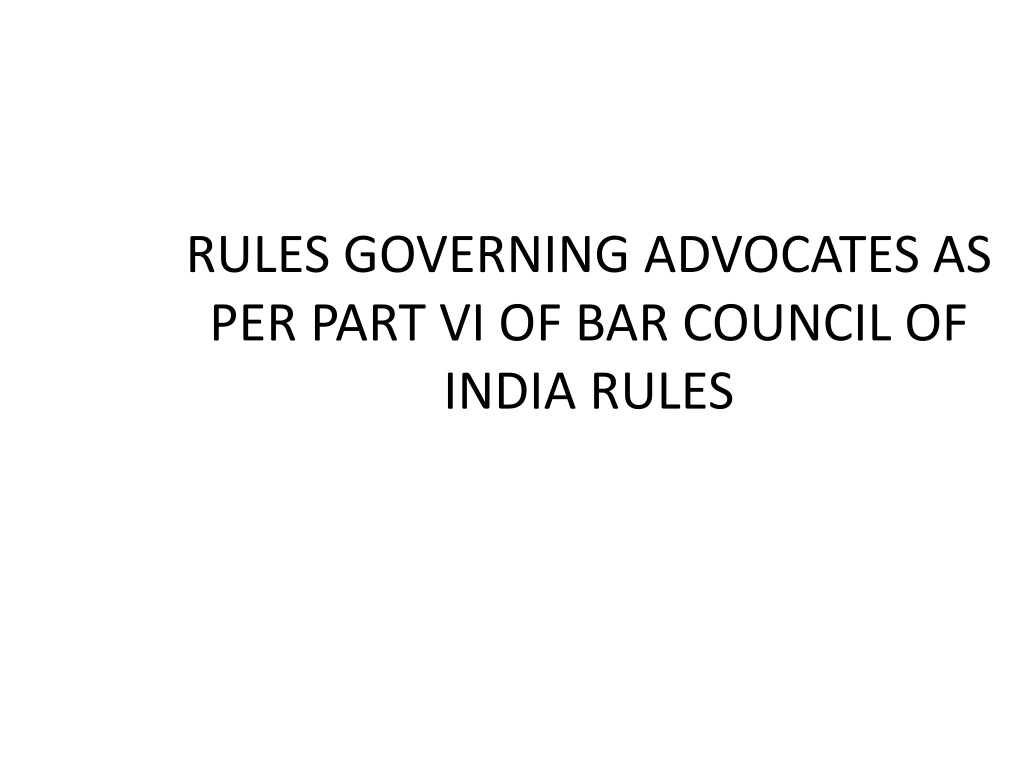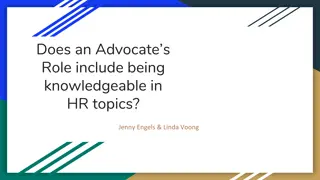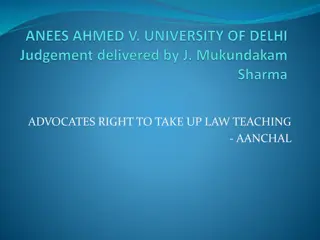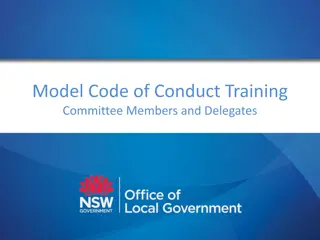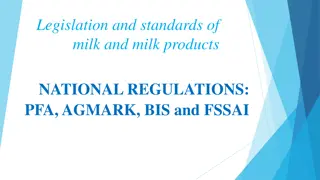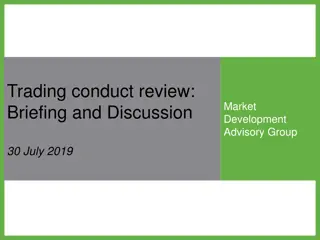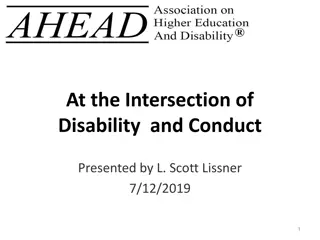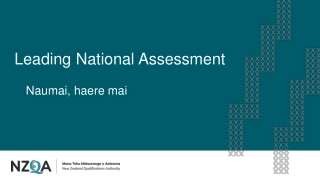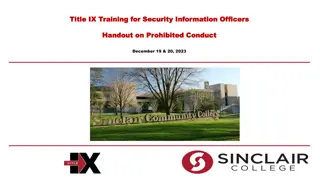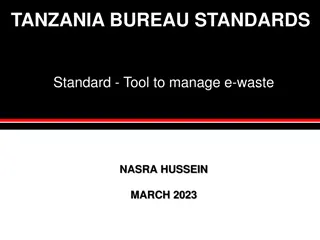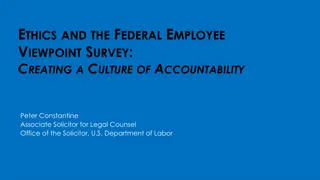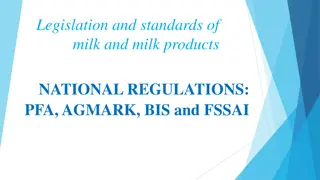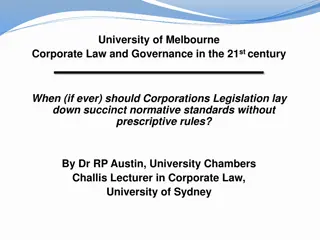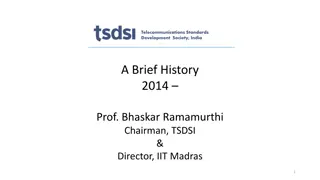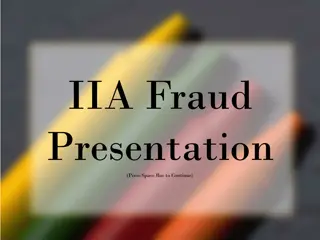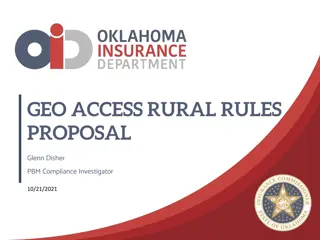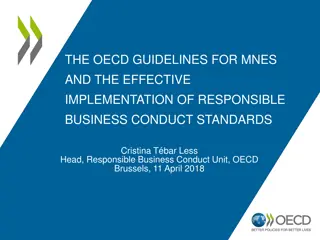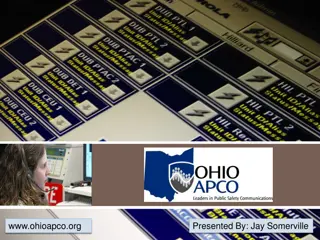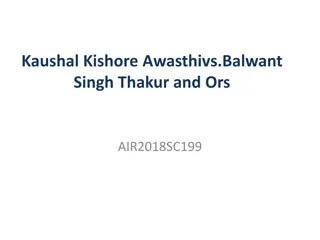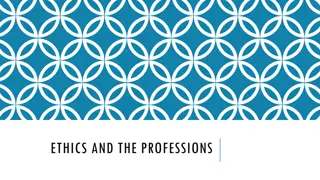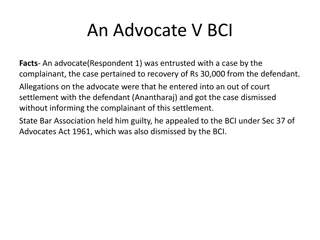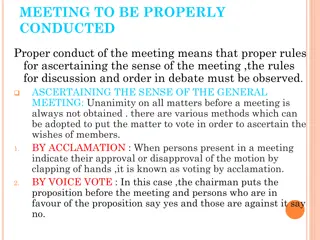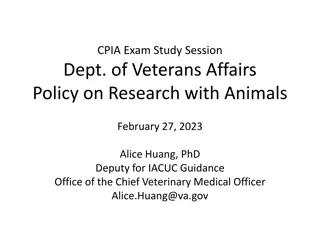Rules Governing Advocates and Standards of Professional Conduct in India
This content outlines the rules governing advocates as per Part VI of the Bar Council of India rules, focusing on restrictions on senior advocates. It highlights the criteria for designating a senior advocate, along with specific restrictions and standards of professional conduct to be followed. The standards of conduct include duties towards the court, clients, opponents, colleagues, imparting training, rendering legal aid, and restrictions on other employment.
Download Presentation

Please find below an Image/Link to download the presentation.
The content on the website is provided AS IS for your information and personal use only. It may not be sold, licensed, or shared on other websites without obtaining consent from the author. Download presentation by click this link. If you encounter any issues during the download, it is possible that the publisher has removed the file from their server.
E N D
Presentation Transcript
RULES GOVERNING ADVOCATES AS PER PART VI OF BAR COUNCIL OF INDIA RULES
RULES GOVERNING ADVOCATES RESTRICTIONS ON SENIOR ADVOCATES- who are senior advocates: Section 16:Advocates Act- An advocate may, with his consent, be designated as senior advocate if the Supreme Court or a High Court is of opinion that by virtue of his ability, standing at the Bar or special knowledge or experience in law, he is deserving of such distinction STANDARDS OF PROFESSIONAL CONDUCT
7 RESTRICTIONS ON SENIOR ADVOCATES 1. Senior advocate not to file vakalatnama or act or plead under any court other than mentioned in Section 30 of Advocates Act, 1961. 2. He is not to appear without an Advocate on Record (AOR) in the Supreme court or or without an Advocate in Part II of the State Roll or the authoriries mentioned in Section 30 of Advocates Act 3. He is not to accept instructions to draft pleading, affidavits, advice on evidence or to do any drafting work of an analogous kind in any Court or Tribunal or before any authorities mentioned in Section 30 of the Act or undertake conveyancing work of any kind. This restriction however shall not extend to settling any such matter as aforesaid in consultation with an advocate in Part II of the State Roll. 4. However, he is free to make concessions or give undertaking in the course of arguments on behalf of his clients on instructions from the junior advocate. 5. He shall not accept directly from a client any brief or instructions to appear in any Court or Tribunal or before any person or other authorities in India. 6. A Senior Advocate who had acted as an Advocate (Junior) in a case, shall not after he has been designated as a Senior Advocate advise on grounds of appeal in a Court of Appeal or in the Supreme Court, except with an Advocate as aforesaid. 7. He may in recognition of the services rendered by an Advocate in Part-II of the State Roll appearing in any matter pay him a fee which he considers reasonable.
STANDARDS OF PROFESSIONAL CONDUCT-Rules 1- 52 of Chapter II of Part VI The standards of conduct and etiquette are divided into 7 sections- Section I- Duty to the Court : Rules 1-10 Section II- Duty towards client: Rules 11-33 Section III- Duty towards opponents: Rules 34-35 Section IV- Duty to colleagues: Rules 26-39 Section IV A- Residual duties: Rules 40-44B Section V- Duty in imparting training: rule 45 Section VI- Duty to render legal aid: Rule 46 Section VII- Restriction on other employment: Rule 47-52
DUTY TOWARDS COURT Rule 1- Advocate to act in a dignified manner Rule 2- Maintain a respecful attitude towards the court Rule 3- Not to influence the Judge or communicate in private with the Judge Rule 4- Prevent himself and his client to act in an unfair manner with the opponent party. Rule 5- Refuse to represent clients who insist on unfair means Rule 6- Appear in proper dress code Rule 7- Refuse to appear in cases where any member of the Bench is a relative of the advocate Rule 8- Not to wear bands or gowns in public places Rule 9- Not represent organizations of which he is a member Rule 10- Not to appear in cases where he himself has a pecuniary interest Rule 11- Not to stand as a surety of client in legal proceedings.
DUTY TOWARDS CLIENT Rule 11- Bound to accept briefs Rule 12- Not to withdraw from service of client unless there is a sufficient cause Rule 13- Not appear in matters where he himself is a witnes Rule 14- Full disclosure to the client Rule 15- Uphold client interest by all means Rule 16- Not suppress material that proves the innocence of the accused Rule 17- Not disclose the communications between client and himself Rule 18- Exception to rule 17- Section 126 of Evidence Act, 1872 Rule 18- Not to instigate litigation Rule 19- Act on instruction of the client Rule 20- Not to fix a fee dependent on the result of the suit
CONT.. Rule 21- Not to buy or receive any actionable claim Rule 22- Not bid or purchase property arising of legal proceeding Rule 22A- Not bid or transfer property arising of legal proceeding Rule 23- Not adjust fees against personal liability Rule 24- Not to abuse the confidence of client Rule 25- Keep proper accounts Rule 26- Can divert expenses from accounts towards fees, with the client consent Rule 27- Intimate the client on amounts Rule 28- To Adjust the fee Rule 30- To provide copy of the accounts Rule 31- Not to enter into arrangements whereby funds in his hands are converted into loans. Rule 32- Not to lend money to his client Rule 33- Not to appear for opposite party
DUTY TOWARDS COLLEAGUES Rule 36- Not advertise or solicit work Rule 37- Not to permit his name to be used in unauthorized professional services Rule 38- Not to accept a fee less than the fee, which can be taxed under rules when the client is able to pay more. Rule 39- Not to appear in any case where another advocate has filed a vakalat or memo for the same party, except on the consent of the other advocate.
Duty in Imparting Training RULE 45- Every advocate shall in the practice of the profession of law bear in mind that any one genuinely in need of a lawyer is entitled to legal assistance even though he cannot pay for it fully or adequately and that within the limits of an Advocate s economic condition, free legal assistance to the indigent and oppressed is one of the highest obligations an advocate owes to society.
Duty to render legal aid Every advocate shall bear in mind that any one genuinely in need of a lawyer is entitled to legal assistance even though he cannot pay for it fully or adequately and that within the limits of an Advocate s economic condition, free legal assistance to the indigent and oppressed is one of the highest obligations an advocate owes to society.
Restriction on other Employments Rule 47- An advocate is not to engage in any business other than a sleeping partner in a firm. Rule 48- He may be Director/Chairman of a company provided that he does not do any work in executive character. Rule 49- He shall not be a full time salaried employee as long as he continues to practise. Rule 50- He may continue in the inherited family business but he cannot be involved in the management of such business. Rule 51- He may review Parliamentary bills, edit text books, coach students or do other academic work on remuneration. Rule 52- He can accept part time employment with the consent of State Bar Council.
